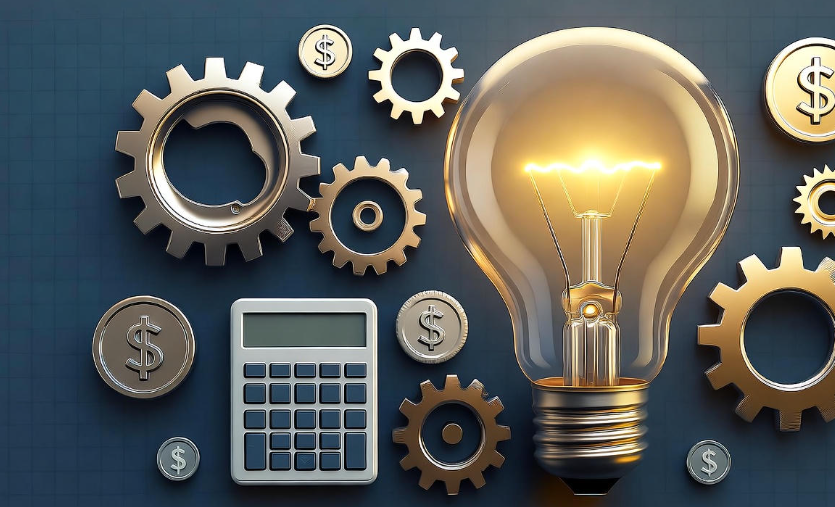Running a business is like growing a tree. In the beginning, it’s small, fragile, and needs care every single day. But as time passes, it grows roots, becomes stronger, and starts giving back — if it’s nurtured properly. The real challenge isn’t starting a business. It’s keeping it alive, healthy, and growing for years to come. That’s where long-term sustainability comes in — the quiet but powerful secret that separates short-lived ventures from lasting empires.
What Does Business Sustainability Really Mean?
Let’s keep it simple — business sustainability means running your business in a way that it can survive, adapt, and thrive over the long term. It’s not just about profit. It’s about building a system that balances financial growth, social responsibility, and environmental care.
In other words, it’s about doing good business — the kind that benefits you, your employees, your customers, and the planet.
Why Most Businesses Fail to Sustain for Long ⚠️
A huge number of businesses don’t make it past their fifth year. And no, it’s not always because they had a bad idea. Many fail because they didn’t plan for the future.
Here’s what usually goes wrong:
| Common Mistakes | Impact |
|---|---|
| Focusing only on short-term profit | Loss of brand trust and burnout |
| Ignoring customer experience | Decline in loyalty and sales |
| Poor financial management | Debt and instability |
| Not adapting to change | Becomes outdated |
| Weak company culture | High employee turnover |
When you see big companies thriving for decades — like Apple, Toyota, or Unilever — it’s because they’ve mastered the art of balance. They adapt, evolve, and always think long-term.
The Foundation of Long-Term Business Sustainability
If you want your business to last, there are a few core principles you must build around. Think of them as the roots of your business tree — deep, strong, and ready to handle any storm.
1. Have a Clear Purpose Beyond Profit
Money keeps a business running, but purpose gives it meaning. The businesses that stay strong are those built on a deeper “why.”
Ask yourself:
-
Why does your business exist?
-
What real value do you bring to people’s lives?
-
How are you improving something — not just selling something?
When customers and employees feel that you stand for something meaningful, they become your long-term supporters.
Example: Patagonia, the outdoor clothing brand, built its success on sustainability. They encourage customers to repair clothes instead of buying new ones. Their purpose drives loyalty — and that’s true power.
2. Build Trust and Authentic Relationships
Sustainability is not just about money — it’s also about relationships. Your relationships with employees, customers, and suppliers define your strength.
Be honest. Be transparent. Admit mistakes.
Customers can sense authenticity. When they trust you, they’ll stay even if competitors offer lower prices.
Employees, too, are a key part of the sustainability equation. Treat them fairly, support their growth, and make them feel part of something bigger. A motivated team creates a sustainable business.
3. Manage Finances Wisely — Always Plan for Tomorrow
A lot of businesses collapse not because they weren’t profitable, but because they didn’t manage cash flow properly. Financial discipline is the backbone of sustainability.
Here’s a simple rule:
Earn smart. Spend smarter. Save always.
| Financial Tips for Longevity | Why It Matters |
|---|---|
| Keep emergency funds | Helps in slow months or crises |
| Reinvest profits | Fuels steady growth |
| Avoid unnecessary debt | Keeps flexibility high |
| Track expenses regularly | Prevents hidden losses |
Think long-term — not just about next month’s bills but about where you want to be in five years.
4. Adapt to Change, Don’t Resist It
The business world changes fast — new technology, market trends, customer habits. The secret to staying alive is evolution.
Look at Nokia — once a giant in mobile phones. They failed to adapt to smartphones and lost their place. Compare that to Apple or Netflix, who keep evolving.
Stay open-minded. Listen to your customers. Watch trends. Use technology wisely. Even small changes — like going digital or improving online presence — can make a massive difference.
5. Focus on Quality and Consistency
If people can trust your product or service every time, you’ll win their hearts forever. Quality builds loyalty. And loyalty builds sustainability.
Don’t compromise quality to save costs. In the long run, consistency in delivering value is what keeps customers coming back — and bringing others along.
A simple motto to remember:
“Deliver what you promise — every single time.”
6. Be Environmentally and Socially Responsible
Sustainability also means caring for the world that supports your business. Modern consumers love brands that give back — that stand for good causes and eco-friendly actions.
Simple steps like reducing plastic packaging, going paperless, or supporting local charities can strengthen your reputation. It’s not only ethical — it’s profitable, too.
| Sustainable Actions | Benefits |
|---|---|
| Reduce waste | Saves cost, improves brand image |
| Go digital | Increases efficiency |
| Support local causes | Builds community trust |
| Use eco-friendly materials | Attracts conscious customers |
7. Build a Culture That Lasts
Culture is invisible — but it’s everything. It’s the spirit that holds your business together.
Create a work environment where people feel respected, motivated, and connected. Encourage innovation, teamwork, and learning. When employees are happy, they take care of customers — and customers take care of your business.
A strong culture can survive leadership changes, crises, and market shifts. It’s your business’s DNA.
8. Use Technology for Smart Growth ⚙️
Technology isn’t just a tool — it’s a growth partner. From automating small tasks to understanding customer behavior, it saves time, money, and effort.
Use CRM systems, analytics, and AI tools to make smarter decisions. Go online, build a strong brand presence, and engage your audience through social media.
Digital transformation isn’t optional anymore — it’s survival.
9. Never Stop Learning and Innovating
A sustainable business is a learning business. Stay curious. Ask questions. Encourage new ideas.
Innovation doesn’t always mean inventing something big — sometimes it’s just improving how you do things.
Maybe it’s simplifying a process, changing packaging, or offering faster customer support.
The world keeps changing — the ones who learn faster, win faster.
10. Balance Work, People, and Planet
A business that hurts its people or the planet can’t last. Sustainability means finding balance — between profit, people, and the planet.
This idea is often called the Triple Bottom Line:
| Element | Focus Area | Example |
|---|---|---|
| People | Employees, customers, society | Fair wages, safe work, community support |
| Planet | Environment | Recycling, renewable energy |
| Profit | Economic growth | Long-term financial stability |
Businesses that balance all three build deep trust and long-term growth.
Real-World Example: Unilever’s Sustainable Living Plan
Unilever, one of the world’s biggest companies, launched its Sustainable Living Plan to reduce environmental impact while increasing positive social impact.
Their results?
-
Saved millions through energy efficiency
-
Improved brand loyalty
-
Attracted more investors
That’s proof that doing good is good for business.
Practical Tips for Keeping Your Business Sustainable Every Day
-
Review goals every six months ️
-
Listen to customer feedback — always
-
Diversify income sources
-
Stay transparent about company values
-
Reward loyal employees and customers
-
Keep learning about new technologies
-
Monitor your impact on society and environment
The Hidden Benefit of Long-Term Sustainability
Here’s something many overlook: when your business becomes sustainable, life becomes easier. You spend less time fighting fires and more time creating. You worry less about sales and more about strategy.
Sustainability creates freedom — the kind that allows your business to keep growing even when you’re not watching every minute.

Final Thoughts
The secret to long-term business sustainability isn’t a secret at all. It’s a mix of small, smart decisions made consistently over time.
Stay purpose-driven. Treat people right. Manage money wisely. Keep learning. Care for the planet.
Because in the end, the real goal isn’t just to build a successful business — it’s to build one that lasts.
FAQs
Q1: What is the simplest definition of business sustainability?
It means running a business that can survive and grow for a long time while balancing profit, people, and the planet.
Q2: How can small businesses be sustainable?
By managing finances carefully, using eco-friendly materials, maintaining loyal customers, and adapting to change quickly.
Q3: Why is sustainability important in business?
Because it ensures long-term success, builds trust, saves resources, and strengthens brand reputation.
Q4: Can a business be profitable and sustainable at the same time?
Absolutely! In fact, sustainable businesses often become more profitable because they attract loyal customers and reduce waste.
Q5: What’s the first step to make my business sustainable?
Start with clarity — define your purpose and build from there. Then, align your strategies with your values and long-term vision.




